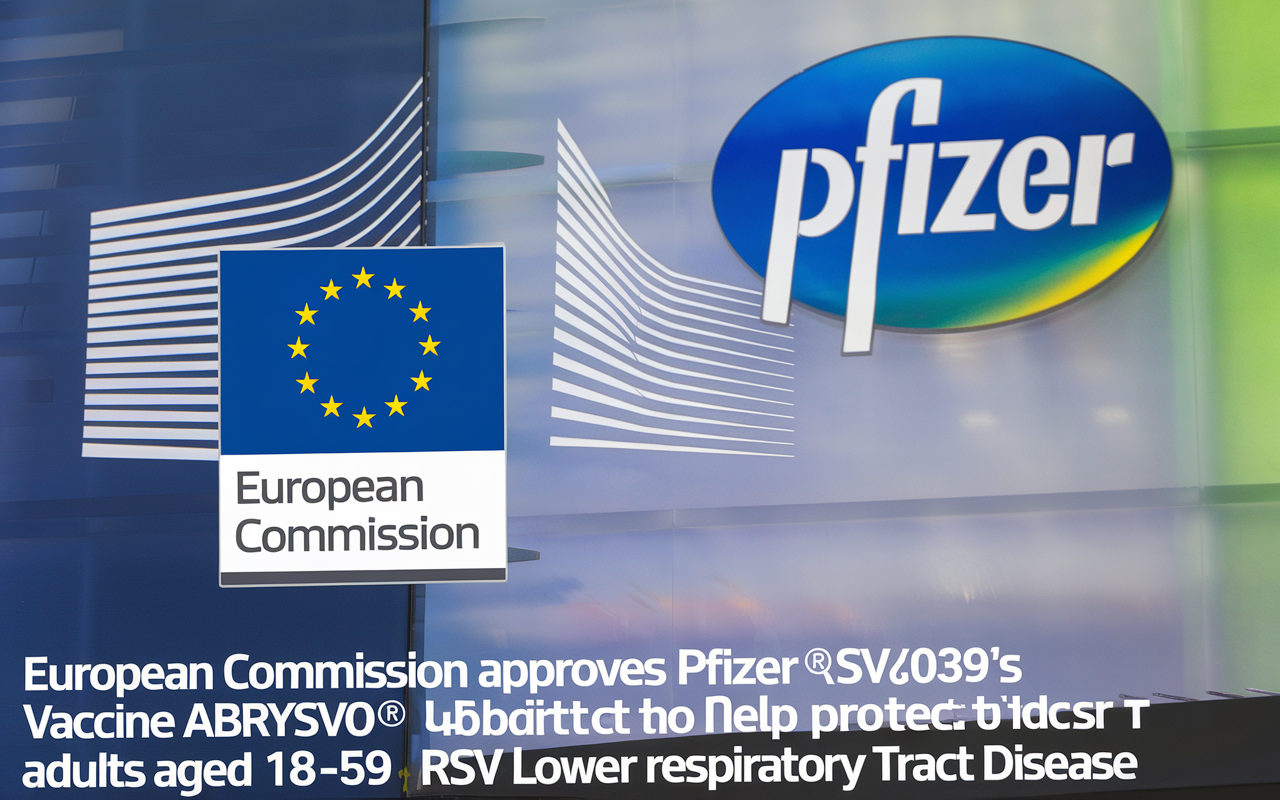Welcome, BioPharmaPulse Readers!
Exciting breakthroughs are unfolding in the biopharmaceutical world. Let's delve into the innovations shaping the future of healthcare.
What's in this issue:
- 🧪 Discover how novel phospholipids are enhancing mRNA delivery.
- 💉 Learn about Pfizer's newly approved RSV vaccine for a broader age group.
- 🧬 Uncover a promising new drug target for acute myeloid leukemia.
- 🌐 Explore advancements optimizing gene therapy techniques.
Quote of the Day
"The only way to discover the limits of the possible is to go beyond them into the impossible." - Arthur C. Clarke
Latest Developments
🧪 Innovative phospholipids enhance mRNA delivery (2 minute read)

Rundown: Researchers at Hokkaido University have developed a novel class of zwitterionic phospholipids that significantly improve the delivery of mRNA using lipid nanoparticles. This advancement could pave the way for more effective mRNA-based therapeutics.
Key Points
- 💡 Introduction of new zwitterionic phospholipids enhances mRNA delivery.
- 🧬 Potential to improve the efficacy of mRNA vaccines and therapies.
- 🌐 Opens doors for efficient gene therapy applications.
- 🔬 Could impact treatment strategies for various diseases.
Why it matters: Enhancing mRNA delivery is crucial for the effectiveness of mRNA-based treatments. This innovation could lead to more efficient vaccines and therapeutics, accelerating the development of personalized medicine.
💉 European Commission approves Pfizer's RSV vaccine ABRYSVO® to help protect adults aged 18-59 against RSV lower respiratory tract disease (2 minute read)

Rundown: Pfizer's ABRYSVO®, an RSV vaccine, has received expanded approval from the European Commission to include adults aged 18 through 59. Previously authorized for those 60 and older, ABRYSVO® now has the broadest approved indication in the EU for RSV prevention.
Key Points
- 🌍 ABRYSVO® approved for adults 18-59 in the EU.
- 🛡️ Broadens protection against RSV lower respiratory tract disease.
- 💪 Strengthens public health efforts to combat RSV.
- 📈 Positions ABRYSVO® as a leading RSV vaccine option.
Why it matters: RSV can cause serious respiratory illnesses in adults. The expanded approval means more people are protected, potentially reducing hospitalizations and enhancing overall public health outcomes.
🧬 New research finds novel drug target for acute myeloid leukemia (2 minute read)

Rundown: A team from UT Health Science Center at San Antonio has identified paraspeckle component 1 (PSPC1) as a crucial protein in the progression of acute myeloid leukemia (AML). Targeting PSPC1 could lead to the development of new therapies for this deadly blood cancer.
Key Points
- 🔬 PSPC1 identified as a novel drug target in AML.
- 🩸 Offers a potential pathway for new treatment development.
- 🌟 Could improve survival rates for AML patients.
- 🧪 Represents significant progress in cancer research.
Why it matters: AML has a low five-year survival rate of just 30%. Finding new drug targets like PSPC1 is essential for developing effective treatments, offering hope to patients and impacting the future of oncology therapeutics.
Question of the Day
🤔 How impactful do you believe enhanced mRNA delivery will be for future therapeutics?
Trending
🌐 New study helps optimize gene therapy
- A multidisciplinary team has created a comprehensive atlas to select the most effective viral vectors for gene therapy, potentially enhancing treatment precision and efficiency.
🧠 New thought-to-speech brain device allows for ‘natural conversation’
- Neuroscientists have developed a brain-computer interface that translates brain activity into speech in real-time, offering hope for individuals with severe paralysis to communicate naturally.
Industry Insight
🔍 Optimizing Gene Therapy Delivery
Efficient delivery of genetic material is a cornerstone of successful gene therapy. The recent development of a comprehensive atlas by researchers at Baylor College of Medicine and collaborators provides a valuable resource for selecting optimal viral vectors.
By leveraging this atlas, scientists can enhance the specificity and efficacy of gene therapies, accelerating the development of treatments for a range of genetic conditions. This advancement brings us closer to realizing the full potential of personalized medicine.
Quick Hits
🧠 Baylor crowned STAT Madness champion for second consecutive year, for insights into memory (2 minute read)
- Researchers discovered that astrocytes, not just neurons, play a crucial role in memory formation and recall, potentially reshaping our understanding of brain function.
🗣️ New thought-to-speech brain device allows for ‘natural conversation’ (2 minute read)
- A breakthrough brain-computer interface reduces lag between thought and speech, enabling real-time conversation for people with severe paralysis.
💡 Low LDL cholesterol levels linked to reduced risk of dementia (2 minute read)
- Study shows low LDL cholesterol levels are associated with a lower risk of dementia, including Alzheimer's disease, with statins offering additional protection.
🤝 GSK’s newest neuro pact is with ABL Bio, a Sanofi-partnered South Korean biotech (2 minute read)
- ABL Bio has entered a licensing agreement with GSK focusing on neurodegenerative diseases, expanding its global partnerships.
Wrap Up
Thank you for joining me on this journey through the latest in biopharmaceutical innovation. The advances we're witnessing hold the promise of transforming patient care and shaping a healthier future. Let's continue to stay informed and inspired by the strides being made in our field.
Until next time, keep your pulse on the innovation!
Warm regards,
Elliot Reeves | BioPharmaPulse
😊 How did you like today's email?
- 😍 Loved it
- 🙂 It was OK
- 😕 Could be better
